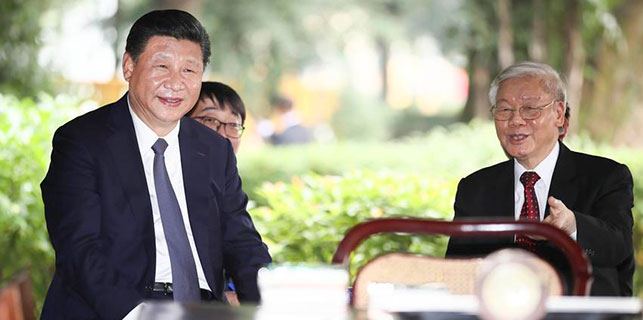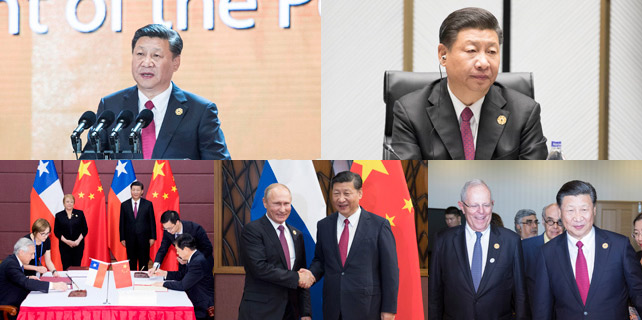Toward stronger China-South Africa ties
During the 19th National Congress of the Communist Party of China, the leadership made two key judgments: the principal contradiction of China has evolved into one between unbalanced and inadequate development and the people's ever-growing needs for a better life; and socialism with Chinese characteristics has entered a new era.
Based on these two judgments, the congress drew up an impressive blueprint. By 2020, China will finish building a moderately prosperous society in all respects, completely eradicating abject poverty without leaving anyone behind. By 2035, China will basically realize socialist modernization and, by mid-21st century, develop into a modern socialist country that is prosperous, strong, democratic, culturally advanced, harmonious, and beautiful.
To ensure that this ambitious blueprint is realized, the congress has elected a new generation of the Party's central leadership with General Secretary Xi Jinping as the core, and established the historical position of the Xi Jinping Thought on Socialism with Chinese Characteristics for a New Era as a guiding thought and basic policy to unite and lead the efforts of the whole Party and country going forward.
The essence of Xi Jinping Thought is two-fold. First, we must take a people-centered approach and always put the interests of the people first. Second, we must associate the future of China with the future of the world, and connect our efforts to build a beautiful and better China to our efforts to build a beautiful and better world.
As a responsible and major member of the international community, China has always valued its relations with the world and remains committed to making it a better place. Maintaining this consistency and commitment, the 19th Party Congress put forward its vision for the world in a new era: China will pursue a new type of international relations, featuring mutual respect, fairness, justice, and win-win cooperation, and will work with peoples of all countries to build a community of shared future for mankind, which would be an open, inclusive, clean and beautiful world of lasting peace, universal security, and common prosperity.
Moving forward, China will continue to uphold its fundamental foreign policy goal of preserving world peace and promoting common development, and China's continued prosperity will offer to the world, particularly to the developing countries, a new path and opportunities for modernization and building a better social system.
China-South Africa comprehensive strategic partnership has maintained robust momentum marked by unprecedented strategic and political mutual trust. And a more developed China will inject new impetus into and create new opportunities for bilateral win-win cooperation for common development.
As two major emerging powers and important members of multilateral forums such as BRICS and G20, China and South Africa have been playing increasingly important roles in promoting world peace and development, and in upholding the shared interests of all developing countries.
China and South Africa have strong economic complementarities. With a prime geographical location, and boasting rich resources, sound infrastructure, well-regulated market, and sound legal system, South Africa is the African country that is the most deeply and substantively involved in linking with the Belt and Road Initiative. And China has the capital, technology, market, enterprises, talents, and development experience. So the two countries need and complement each other for cooperation and development.
Next year will mark the 20th anniversary of China-South Africa diplomatic ties. China will take this important opportunity to work more closely with South Africa in order to promote cooperation in 10 priority areas, including infrastructure, human resources, manufacturing and processing, agriculture, tourism, marine economy, finance, security, people-to-people exchange and international cooperation.
China is ready to work more closely with its South African friends to make bilateral relations more productive and beneficial to our two peoples, and make it a locomotive in China-Africa relations.
The author is Chinese ambassador to South Africa.


















